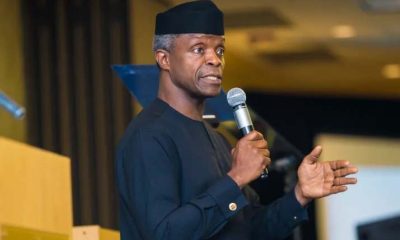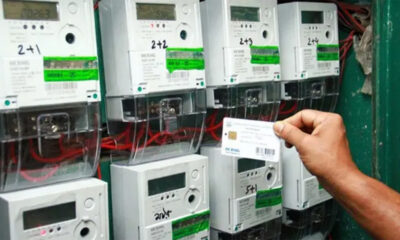Business
We’ll increase tariff next week, DisCos alert Nigerians
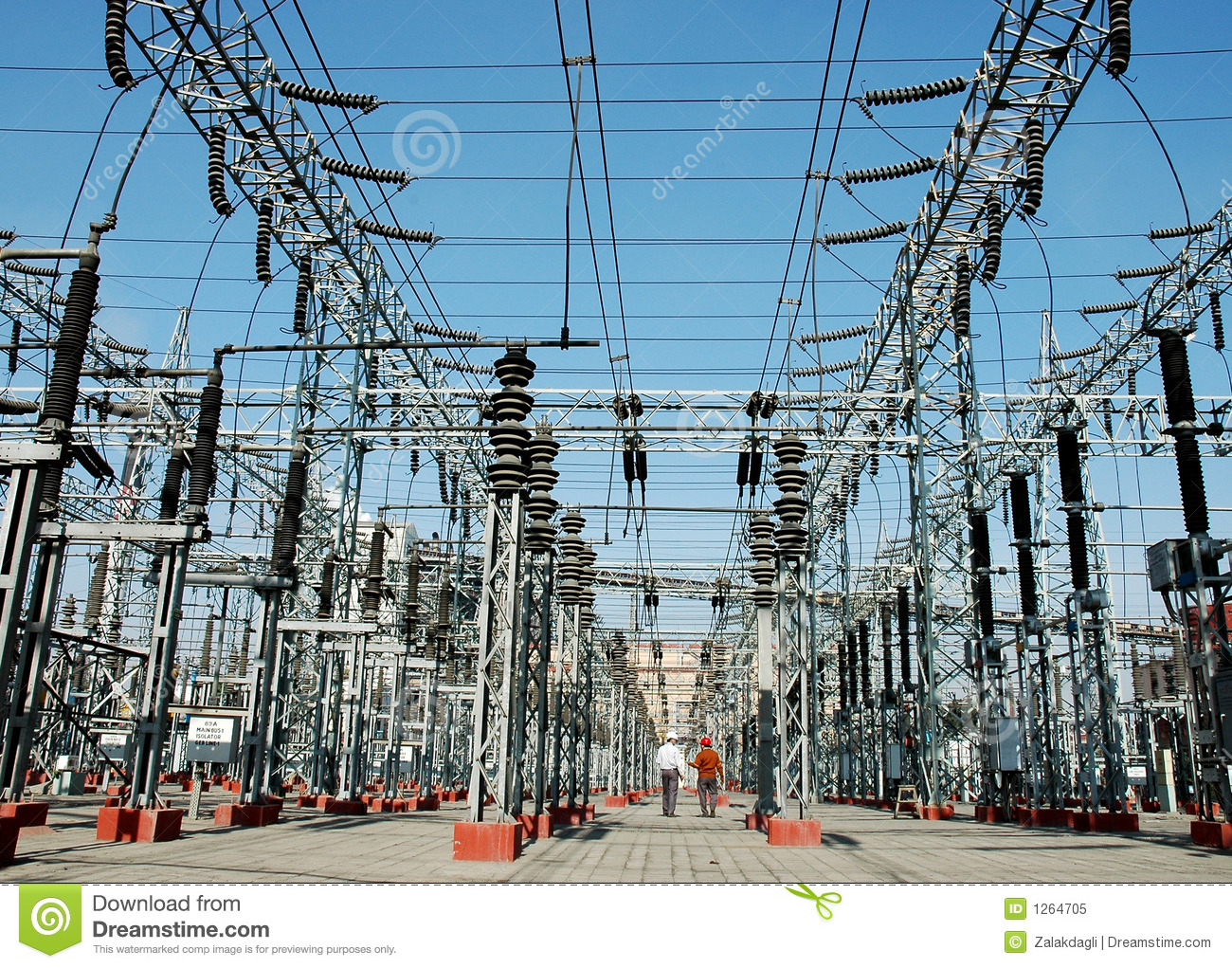
We’ll increase tariff next week, DisCos alert Nigerians
Electricity Distribution Companies have stated that tariff will increase from July 1, 2023.
In statements sent to respective consumers on Sunday night, the DisCos stated that the review was due to the fluctuation of the maira in the exchange rate market.
This statements which were worded in similar fashion included that of Abuja DisCo, Eko DisCo and Ikeja Disco.
“Effective July 1st 2023, please be informed that there will be an upward review to the electricity tariff influenced by the fluctuating exchange rate.”
“Under the MYTO 2022 guidelines, the previously set exchange rate of N441/$1 may now be revised to approximately N750/$1 which will have an impact on the tariffs associated with your electricity consumption.”
“For customers within band B and C, with supply hours ranging from 12 to 16 per day, the new base tariff is expected to be N100 per kWh while Bands A with (20 hours and above) and B (16 to 20 hours) will experience comparatively higher tariffs.
READ ALSO:
- Nigerians in UK schools grew from 20,000 to 127,000 in 3 yrs – British envoy
- Lack of license, foreign exchange, others hinder fuel importation
- NiMet predicts 3-day cloudiness, thunderstorms
“For customers, with a prepaid meter, we encourage you to consider purchasing bulk energy units before the end of this month as this will allow you take advantage of the current rates and potentially make savings before the new tariffs come into effect.
“For those on post-paid (estimated) billing, a significant increment is imminent in your monthly billing, starting from August,” read a statement from Abuja Electricity Distribution Company.
On its part, Ikeja Electricity Distribution Company (IKEDC) said, “Dear Customers, electricity tariffs are set to go higher on July 1st due to the floating exchange rate. MYTO 2022 set the exchange rate at N441/$1, which may now be adjusted to about N750/$1. We may be looking at a base tariff of N100 per kWh for Band C (12 – 16 supply hours per day).
“Bands A (20 hours and above) & B (16 – 20 hours) will be much higher. If you have a prepaid meter, buying bulk energy units for your home or office before the end of the month may help you make some savings before you have to buy at the new rate.
“For those on post-paid (estimated) billing, a significant increment is imminent in your monthly billing, starting from August. Please take note. Electricity units are set to jump by 30-40% in just over a week. You are best advised to buy as many units as you can before July 1.”
While 𝐄𝐤𝐨 𝐄𝐥𝐞𝐜𝐭𝐫𝐢𝐜𝐢𝐭𝐲 𝐃𝐢𝐬𝐭𝐫𝐢𝐛𝐮𝐭𝐢𝐨𝐧 𝐂𝐨𝐦𝐩𝐚𝐧𝐲 (𝐄𝐊𝐃𝐂) said, “Dear Customers, electricity tariffs are set to go higher on July 1st due to the floating exchange rate. MYTO 2022 set the exchange rate at N441/$1, which may now be adjusted to about N750/$1.
“We may be looking at a base tariff of N100 per kWh for Band C (12 – 16 supply hours per day). Bands A (20 hours and above) & B (16 – 20 hours) will be much higher.
“If you have a prepaid meter, buying bulk energy units for your home or office before the end of the month may help you make some savings before you have to buy at the new rate.
“For those on post-paid (estimated) billing, a significant increment is imminent in your monthly billing, starting from August.”
We’ll increase tariff next week, DisCos alert Nigerians
Daily Trust
Business
We’re not involved in N40m HxAfrica mortgage scheme – FMBN
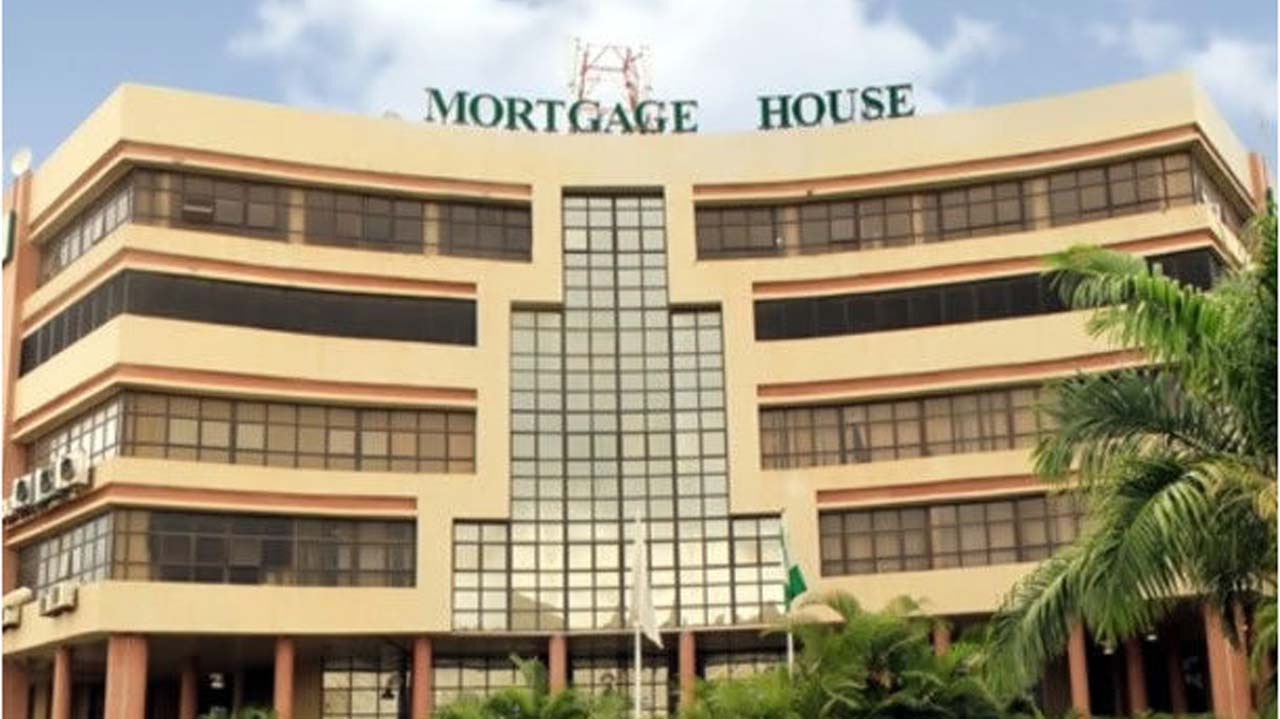
We’re not involved in N40m HxAfrica mortgage scheme – FMBN
By Dada Jackson
The Federal Mortgage Bank of Nigeria (FMBN) has distance itself from claims linking it to a N40 million mortgage pre-financing scheme promoted by Housing Exchange Africa (HXAfrica).
In an official disclaimer issued by Virginia Jang, FMBN’s Group Head of Corporate Communications, it clarified that the bank has no formal partnership or approval arrangement with HXAfrica concerning the alleged scheme.
“The management of the Federal Mortgage Bank of Nigeria wishes to disclaim reports in the media by HXAfrica (Housing Exchange Africa) on a purported N40 million mortgage pre-financing scheme, which referred to FMBN as a partner,” Jang stated
She further explained that while HXAfrica had applied for engagement with the bank, no approvals had been granted, and no formal agreements had been finalized.
Jang emphasized that FMBN remains committed to advancing housing initiatives, including the forthcoming Diaspora Mortgage Scheme, which is being developed in collaboration with the National Diaspora Commission (NIDCOM)
“While the FMBN and NIDCOM remain committed to the roll-out of the Diaspora Mortgage Scheme after obtaining the necessary regulatory approvals, we will endeavour to provide official information and updates on our respective websites and social media handles to prevent the public from being misled,” she added.
The statement also revealed that NIDCOM had issued a similar disclaimer regarding the HXAfrica scheme, urging the public to be cautious of unverified claims.
FMBN assured citizens that details of the official Diaspora Mortgage Scheme would be communicated through authorized channels once regulatory approvals are secured.
The bank reiterated its commitment to delivering credible housing solutions while encouraging the public to rely only on updates from its verified platforms.
Auto
Soludo: Kojo assembly plant will make Anambra auto manufacturing hub

Soludo: Kojo assembly plant will make Anambra auto manufacturing hub
Anambra State Governor, Professor Charles Chukwuma Soludo, has expressed optimism that the new Kojo automotive assembly plant at Umunya along the Enugu-Onitsha Expressway will not only boost the economy of the state but also reposition it as an automotive manufacturing hub.
The assembly plant nearing completion is expected to roll out its first set of vehicles under the Soludo administration soon.
The governor spoke at the just concluded Anambra State Investment Summit (ANINVEST 2.0) with Kojo Motors as one of the official partners and sponsors.
This year’s ANINVEST held under the theme “Changing Gears: Accelerating Anambra’s Economic Transformation”
was organised by the state government as a pivotal event in advancing the collective vision for rapid development of the state’s economy.
Speaking on the sidelines of the summit, Managing Director of OMAA, Chinedu Oguegbu, reiterated the plan of the company to invite Governor Soludo to commission the plant and drive the first locally assembled vehicle out of the Kojo Assembly Plant by the first quarter of 2025.
He said, “His Excellency is very passionate about the Kojo Motors auto assembly plant. He is very eager to see its completion and commencement of assembly of vehicles come to reality.
“I can assure him and the state government that we are doing everything possible to ensure we meet with the governor’s wishes and aspirations.”
The event brought together stakeholders from the various sectors of the local and global economy including industry leaders, development partners, financial institutions and other relevant participants, all united in a commitment to accelerating the economic transformation of Anambra State.
Anambra, according to the state governor, is fast becoming a renewed investors’ destination for different types of money bags rushing to the state to capitalise on the pledged ease of doing business to set up businesses.
“This time around, one of such massive investments is being undertaken by John Ikenna Oguegbu, an indigene of the state and chairman, founder and CEO, Kojo Motors Limited,” Chinedu Oguegbu said.
Last year September, Governor Soludo performed the groundbreaking ceremony of the Kojo Motors auto assembly plant for the local assembly of the OMAA range of gas-powered mini passenger and commercial buses as well as Chinese range of Yutong passenger and commercial buses.
While congratulating John Ikenna Oguegbu, chairman and chief executive of Kojo Motors Limited for bringing his wealth to his home state to invest. Governor Soludo also commended the Yutong buses manufacturers from China for the smart move of coming to Anambra State to set up the auto assembly plant in collaboration with the local franchisee.
The governor stated that the decision to allow prospective investors to come and invest in the state was not out of philanthropy or charity, but rather a business decision model that would take Anambra State to the world and bring the outside world to the state.
Governor Soludo pledged the state government’s commitment and patronage of the vehicles rolling out of the Yutong Assembly plant.
He declared that the state government under his administration was on course for massive industrial development, employment generation and prosperity for all its citizens.
Business
Naira slumps on NNPC, marketers importation of fuel

Naira slumps on NNPC, marketers importation of fuel
The naira has weakened further on the parallel market, dropping to N1,740/$ from N1,720/$.
Similarly, the NAFEM official exchange rate showed a slight depreciation on Friday, closing at N1,652/$ compared to the earlier rate of N1,650/$.
The Nigerian National Petroleum Company Limited (NNPC) and other oil marketers imported 1.5 million metric tonnes of petrol and 414,018.764 metric tonnes of diesel between October 1 and November 11, 2024.
The country’s inflation rate also spiked, with the Consumer Price Index (CPI) rising to 33.88% in October, up from 32.70% in September, according to the National Bureau of Statistics (NBS).
The oil importation statistics indicated 13,500 metric tonnes of jet fuel alongside petrol and diesel imports during the 42-day period.
The total value of these products was put at $1.9 billion or approximately N3 trillion.
The breakdown revealed that two billion litres of petrol, 500 million litres of diesel, and 17 million litres of jet fuel were imported.
But at an event in Lagos, NNPC’s Group Chief Executive Officer, Mele Kyari, highlighted the company’s commitment to reducing dependence on imported refined products.
The NNPC spokesperson Olufemi Soneye clarified that while the company prioritizes sourcing from local refineries, importation would continue based on economic factors.
READ ALSO:
- NAF air strikes kill scores of bandits in Kaduna, free kidnap victims
- Appeal court affirms Baruwa as NURTW president, renders MC Oluomo election invalid
- 13 Nigerian girls rescued from traffickers in Ghana
“Today, NNPC does not import any products; we are taking only from domestic refineries,” Kyari stated. Soneye, however, added, “The GCEO’s statement should not be construed to imply that NNPC is obligated to be the sole off-taker of any refinery or that we will no longer import fuel. While NNPC prioritises sourcing products from domestic refineries, this is contingent upon economic viability.”
The Dangote Refinery, which has advocated for sourcing locally refined products, faces challenges with pricing dynamics, making the transition complex.
Aliko Dangote, the refinery’s President, recently disclosed that it holds over 500 million litres of fuel in reserves.
The NNPC’s importation data showed Lagos, Warri, Port Harcourt, and Calabar as key discharge points for refined products.
Naira slumps on NNPC, marketers importation of fuel
-

 Sports3 days ago
Sports3 days agoBREAKING: Super Eagles qualify for AFCON 2025
-

 metro1 day ago
metro1 day agoSouth-West NURTW: Why we chose Oluomo over Baruwa
-

 Aviation3 days ago
Aviation3 days agoDisaster averted as bird strike hits Abuja-Lagos Air Peace flight
-

 metro2 days ago
metro2 days agoCourt orders varsity to pay lecturer N40m compensation for wrongful dismissal
-

 Opinion2 days ago
Opinion2 days agoApomu king turns warmonger for PDP
-
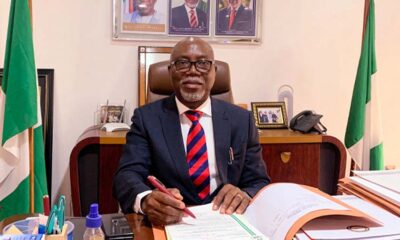
 Politics2 days ago
Politics2 days agoOndo poll: Three gov candidates withdraw for Aiyedatiwa
-

 News2 days ago
News2 days agoLate COAS Lagbaja gets CFR honour, buried amid tributes
-
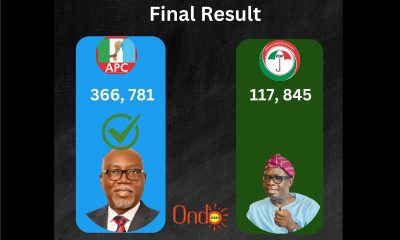
 News4 hours ago
News4 hours ago[UPDATED] [Breaking] APC’s Lucky Aiyedatiwa wins Ondo governorship election





